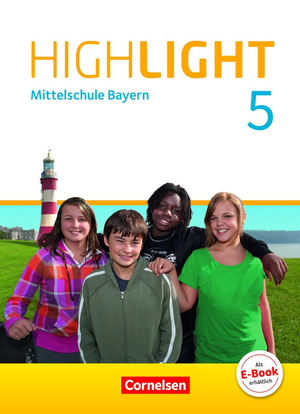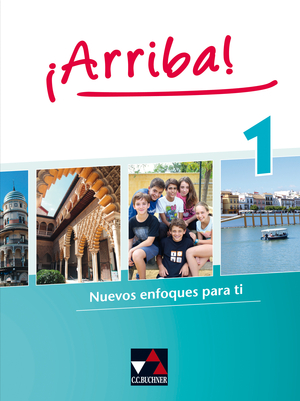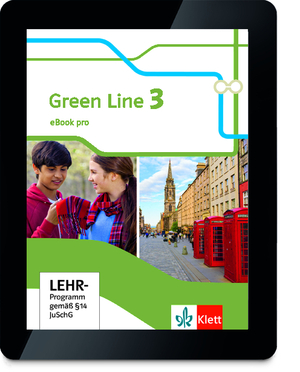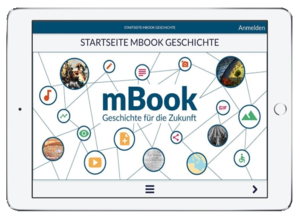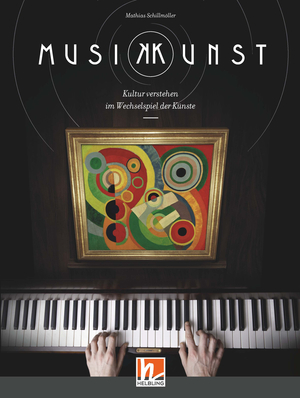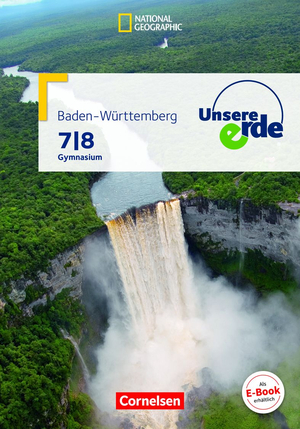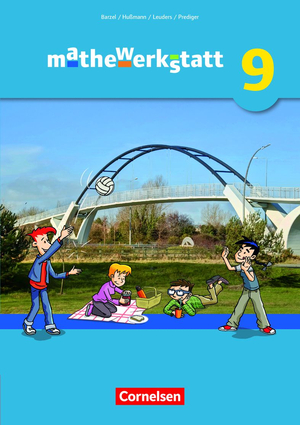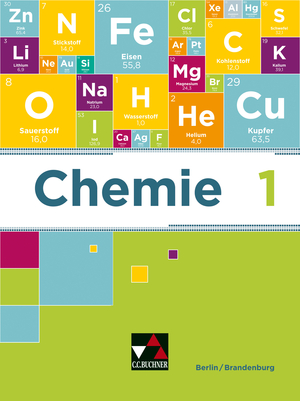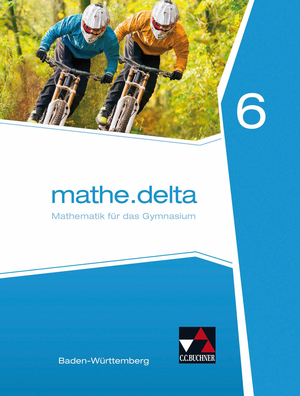-
Category Languages
1ST PLACE

Highlight 5
Mittelschule Bayern (Bavarian middle school)
Concieved by Susan Abbey, Wolfgang Biederstädt and Frank Donoghue
Cornelsen Verlag 2017
ISBN 978-3-06-033376-9The strength of Highlight lies in its integrated and activity-oriented approach: pupils are encouraged to write short texts such as blog entries, text messages or invitations, to make short films or to invent games – frequently with partners. Its varied design allows it to project a realistic image of society.
2ND PLACE

Arriba! 1
Nuevos enfoques para ti
Eds: Melanie Hohmann and Sabine Wolf-Zappek
C.C. Buchner 2015
ISBN 978-3-661-80021-9Arriba! lets pupils dive straight into the language and everyday life of twelve-year-olds. Another strength of this pupil-friendly textbook is its compact presentation, which allows learners to quickly advance to the next learning level. Offering a wide range of possibilities for differentiation, Arriba! promises a swift sense of achievement for all.
3RD PLACE

Green Line 3
eBoook pro
Ed. Harald Weisshaar
Ernst Klett Verlag 2016
ECD50051EPA12Using songs, poems and films, and providing ideas for creative writing and performing, Green Line appeals to a variety of learning types. It successfully and methodically combines the teaching of a range of skills. In addition pupils are introduced to inter-cultural subtleties such as small talk and dos and don’ts.
-
Category Society
1ST PLACE

mBook Geschichte
Geschichtsbuch für die Sekundarstufe I an Gymnasien (History book for lower secondary level – grammar schools)
Eds: Florian Sochatzy and Marcus Ventzke
Cornelsen mBook GmbH 2016The authors of the textbook mBook Geschichte introduce each chapter with a short video statement, where they explain why they believe each topic to be important. In this way this digital textbook illustrates that history is always told from a specific perspective. Its outstanding use of freely available online resources allows pupils to appreciate the modern-day relevance of its content and to make history exciting.
2ND PLACE

MusikKunst
Kultur verstehen im Wechselspiel der Künste (Understanding culture through an interplay between the arts)
By Mathias Schillmöller
Helbling 2016
ISBN 978-3-86227-244-0MusikKunst takes an innovative approach that creates a dialogue between music, art and film. The carefully conceived work breaks out of traditional thinking within disciplinary borders and allows space for improvisation and new insights. The diversity of material is exceptional and, combined with its uncluttered design, it invites pupils on a journey of discovery using examples of music and film from its media box.
3RD PLACE

Unsere Erde 7/8
Baden-Württemberg Gymnasium (Grammar schools Baden-Württemburg)
Eds: Martina Flath and Ellen Rudyk
Cornelsen Verlag 2017
ISBN 978-3-06-064343-1The superb photographs in the geography textbook Unsere Erde are captivating and are a result of a partnership between Cornelsen and National Geographic. The title [Our Earth] conveys the idea of engaging pupils with the preservation of ‘our’ earth. Another strength lies in its high-quality maps and graphics, through which the book carefully and continuously guides pupils in their evaluation of the material. Overall this is not only a useful textbook but also a stimulating book to browse through and read.
-
Category STEM
1ST PLACE

matheWerkstatt 9
Eds: Bärbel Barzel, Stephan Hußmann, Timo Leuders and Susanne Prediger
Cornelsen Verlag 2016
ISBN 978-3-06-040036-2The maths textbook matheWerkstatt stands out due to its coherent concept for heterogeneous class groups. Four figures accompany the pupils through the book; asking questions, speculating and offering ideas to solve the problems. Their differing visions and perception encapsulate the strength of the book which lie in its orientation to context and everyday life, the integrated advancement of process-oriented learning competencies as well as the individualised learning paths.
2ND PLACE

Chemie 1
Berlin/Brandenburg
Eds: Ilona Siehr, Claudia Bohrmann-Linde and Simone Kröger
C.C. Buchner 2016
ISBN 978-3-661-05001-0The chemistry textbook Chemie 1 impresses with its attempts to animate pupils. They are given the opportunity to estimate and test their own knowledge at the start of each chapter, and they subsequently receive feedback. The experiments are described in sufficient detail to allow pupils to carry them out alone. Another highlight is that the work specifically aims to use chemistry lessons to develop language.
3RD PLACE

mathe.delta 6
Mathematik für das Gymnasium (Maths for Grammar School)
Baden-Württemberg
Eds: Axel Goy and Michael Kleine
C.C. Buchner 2016
ISBN 978-3-661-61006-1Ready to go? Each chapter in the maths textbook mathe.delta starts with a self-assessment. The subsequent tour - through food, football pitches or flying high in the sky – incorporates mathematical problems applicable to everyday situations. Highlights of this ‘journey’ include the pages titled Horizonte and Tiefgang, which expertly combine multidisciplinary questions with the advancement of process-oriented learning competencies.
